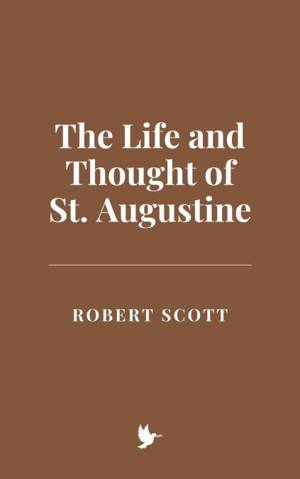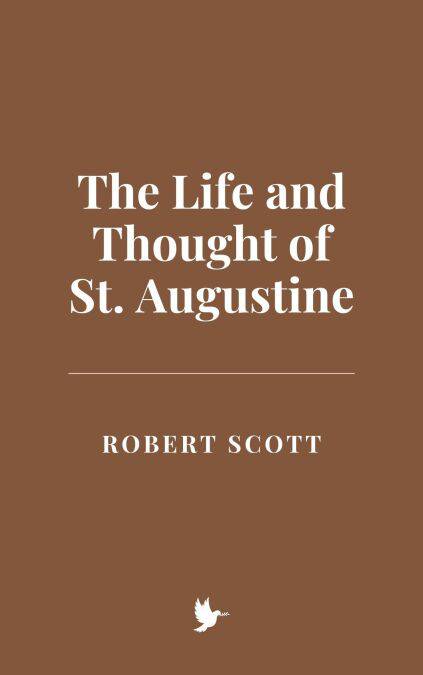
- Afhalen na 1 uur in een winkel met voorraad
- Gratis thuislevering in België
- Ruim aanbod met 7 miljoen producten
- Afhalen na 1 uur in een winkel met voorraad
- Gratis thuislevering in België
- Ruim aanbod met 7 miljoen producten
Omschrijving
This work delves into the life and thought of St. Augustine of Hippo (354–430 CE), one of the most influential figures in Christian history and Western intellectual tradition. Across twenty chapters, it explores Augustine's life, from his early years in Roman North Africa to his conversion to Christianity, his theological development, and his profound legacy.
Key themes include Augustine's struggles with sin, grace, and human desire; his engagement with Neoplatonism and classical philosophy; his responses to theological controversies such as Donatism and Pelagianism; and his groundbreaking contributions to doctrines of the Trinity, grace, and original sin. Particular attention is given to Confessions and De Civitate Dei (The City of God), highlighting their significance as autobiographical and theological masterpieces. Augustine's vision of history as a struggle between the earthly and heavenly cities offers an enduring framework for understanding human society and divine providence.
The work also addresses the historical and cultural contexts of late antiquity, situating Augustine's ideas within the decline of the Roman Empire and the rise of Christianity as a dominant cultural force. His integration of faith and reason, his synthesis of classical philosophy with Christian theology, and his emphasis on the transformative power of love and grace are explored in depth.
Augustine's legacy is traced through the medieval period, the Reformation, and into modern thought, demonstrating his influence on figures such as Anselm, Aquinas, Luther, and Kierkegaard. His introspective approach in Confessions shaped Western notions of individuality, while his theology of grace and predestination continues to provoke debate. Through his works, Augustine offers a timeless vision of hope and redemption, rooted in the love of God and the pursuit of truth.
This study provides a comprehensive analysis of Augustine's life and thought, presenting him not only as a towering theological figure but also as a profoundly human thinker, grappling with the complexities of faith, reason, and the human condition. It underscores the relevance of Augustine's insights in contemporary discussions of theology, philosophy, and culture, affirming his enduring place in the intellectual and spiritual heritage of the West.
Specificaties
Betrokkenen
- Auteur(s):
- Uitgeverij:
Inhoud
- Taal:
- Engels
Eigenschappen
- Productcode (EAN):
- 9798230282013
- Verschijningsdatum:
- 31/12/2024
- Uitvoering:
- E-book
- Formaat:
- ePub

Alleen bij Standaard Boekhandel
Beoordelingen
We publiceren alleen reviews die voldoen aan de voorwaarden voor reviews. Bekijk onze voorwaarden voor reviews.












